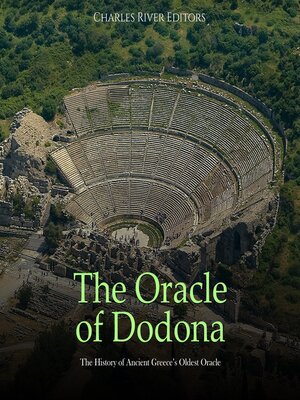The Oracle of Dodona
audiobook (Unabridged) ∣ The History of Ancient Greece's Oldest Oracle
By Charles River Editors

Sign up to save your library
With an OverDrive account, you can save your favorite libraries for at-a-glance information about availability. Find out more about OverDrive accounts.
Find this title in Libby, the library reading app by OverDrive.



Search for a digital library with this title
Title found at these libraries:
| Loading... |
In ancient Greece, "no other practice was so universal than the consultation of oracles." These holy sites were found in 260 locations around the Greek-speaking world, and they were considered the "most satisfactory means of ascertaining the future." These sanctuaries were "set apart from the profane, ordinary world" and were in the beginning restricted to natural locations where the divine was thought to be "especially present." They were set aside for special spiritual functions, and a state of purity was generally required of its participants. A historical tendency toward providing haven for criminals was based on the fear of shedding blood in a holy place, and the "fear that the evil magic would emanate from his curse."
Despite the interest in Greek oracles, modern knowledge remains limited in certain respects, because cult history has become so intertwined with mythology that the lines separating one from another have been nearly lost. Modern scholars studying the oracles have tried to pull the shroud of mythology away from historical facts to illuminate the realities of the Greek cults, but the job has often proved trickier than imagined. If anything, the work of scholars has deepened the mysticism of the oracles rather than dispel it, in large measure due to documenting fascinating and mysterious stories about them. For example, much has been written about natural vapors and fumes that may have caused psychoactive effects in petitioners at oracles. Modern civilizations at times employ this argument to excuse the supposed ignorance of the ancient Greeks, and in some cases, such vapors have been identified and may indeed explain the activities at certain oracles. However, archaeologist Jelle de Boer, intimately associated with some of the most iconic Greek oracles, cautioned that "something can be extra-natural without being outright supernatural."






